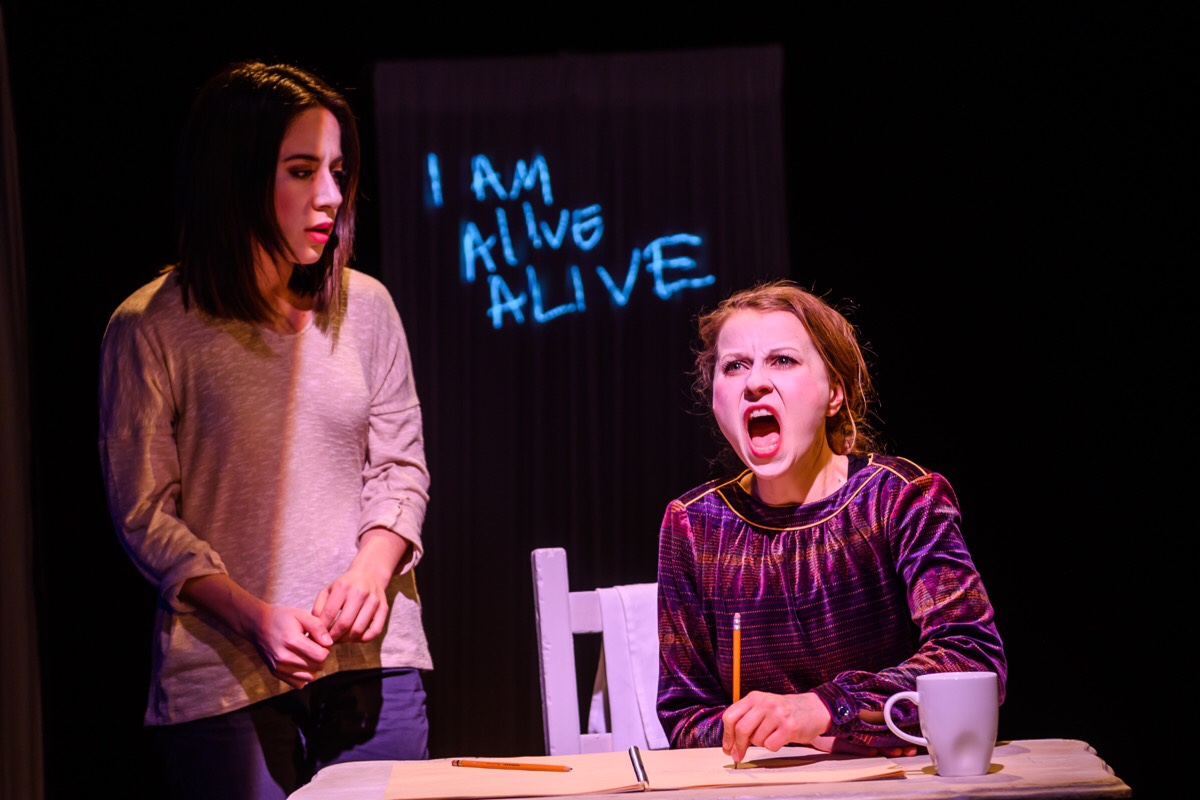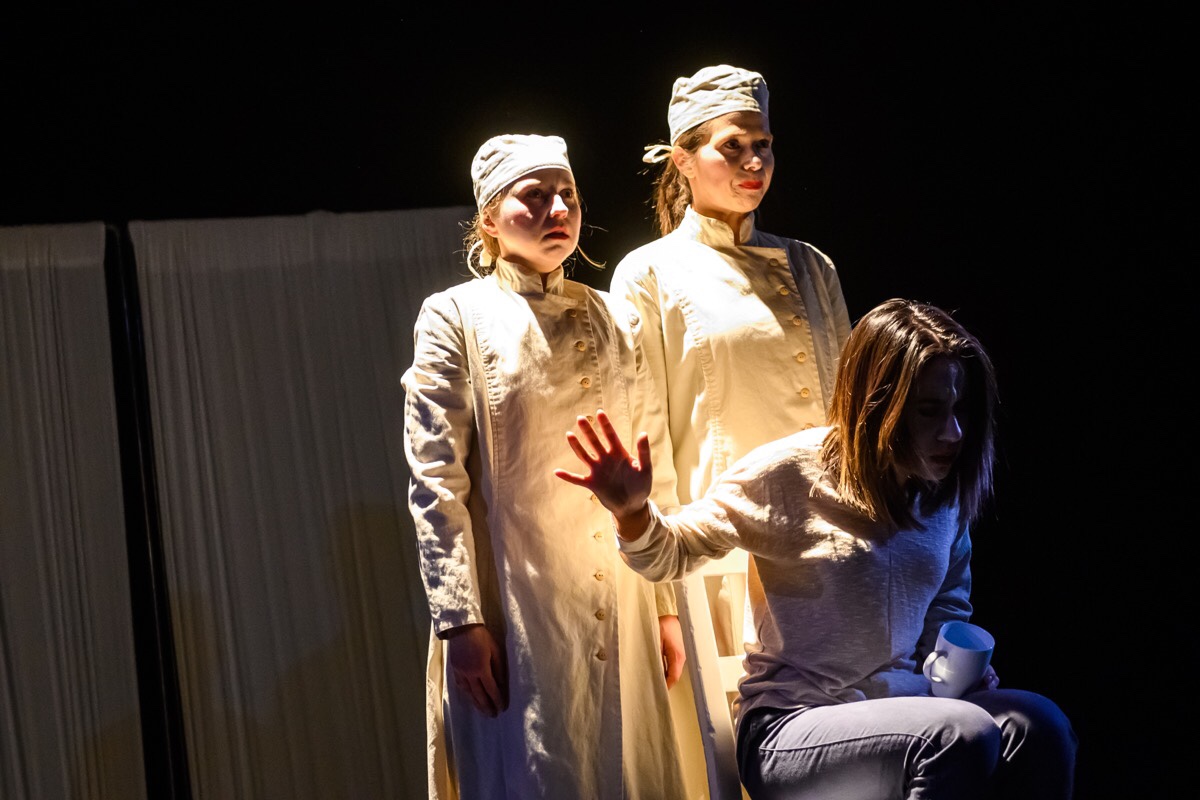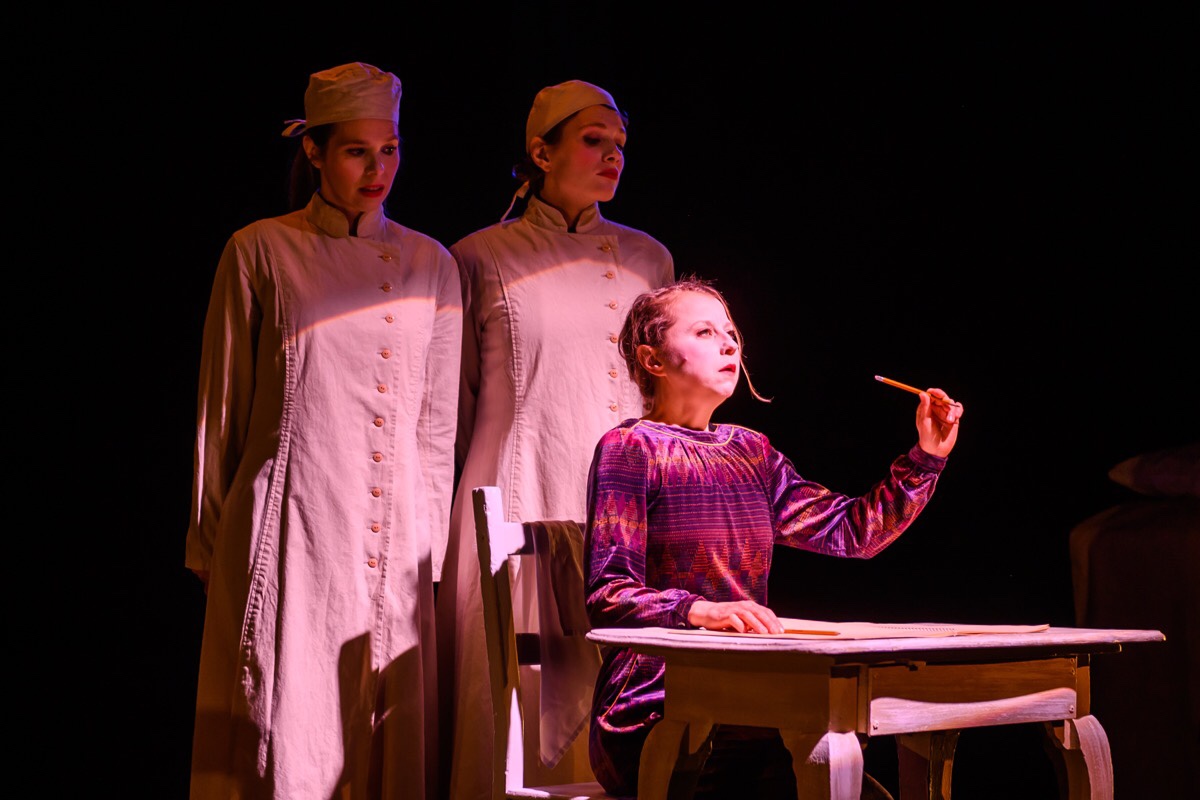The opportunity began in 2017 with an ordinary BIST outing to see Brain Storm by Taliesin McEnaney at the Toronto Fringe Festival. I wrote a review. I released my revised book Concussion Is Brain Injury to the world shortly after. Based on my review and my book, Taliesin, a member of the Brain Injury Society of Toronto (BIST) community, approached me two years later to be both brain injury consultant and dramaturge for Brain Storm’s world première. I did not see that opportunity coming! I still cannot believe she sought me out because she values my knowledge, skills, and thoughts. Brain injury tends to devalue you in others’ eyes. I am so grateful to be seen by Taliesin!
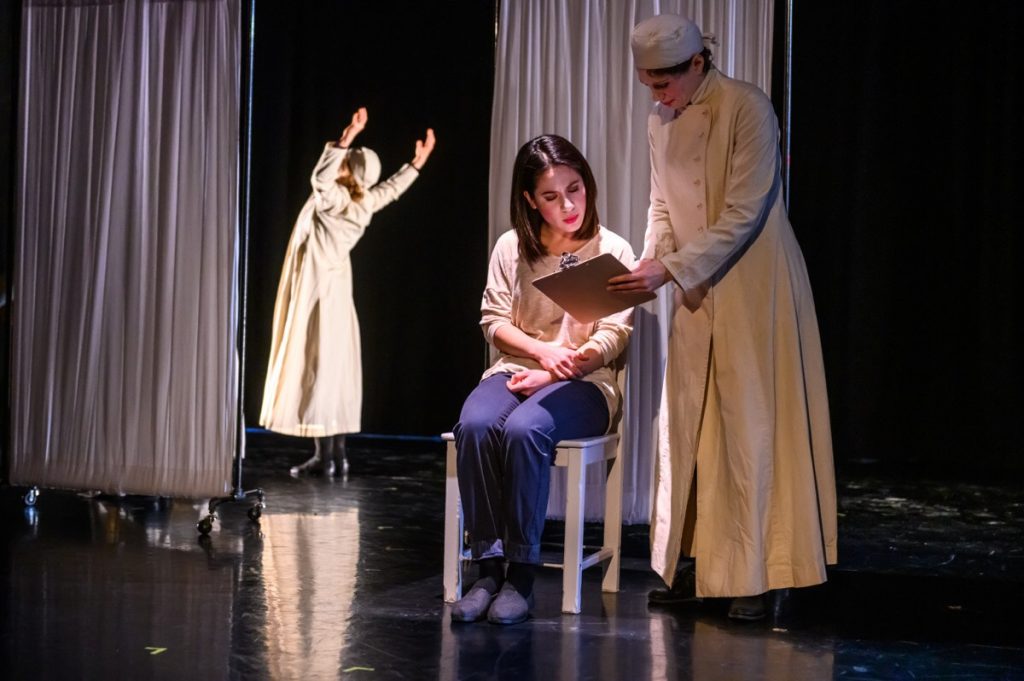
Like Kate, the central character in Brain Storm, sitting dutifully in her chair, waiting for the doctor, the assessments, the diagnosis, the rehab, I too began my recovery dutifully following the prescribed course of a person with brain injury. Attending my appointments, working hard, trying to keep up with social times, failing and failing, rising again to find deviations in the prescribed path that’d take me to a better place, a path I’ve taken alone.
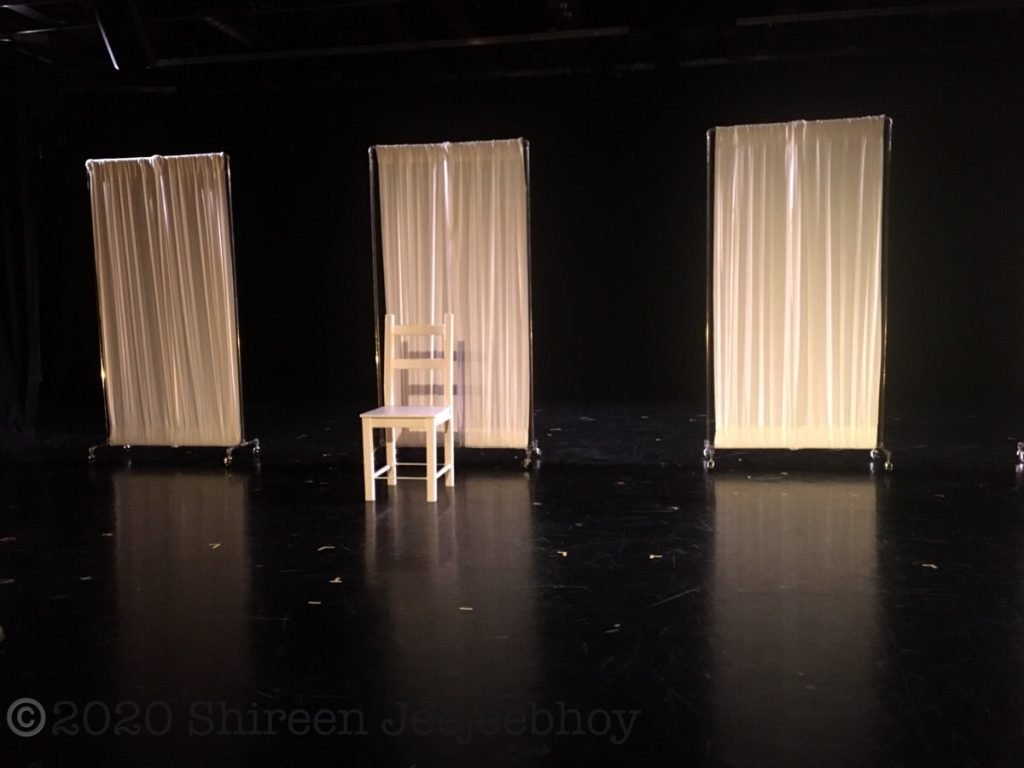
And then suddenly opportunity to work with others came knocking. Suddenly normal life poked its head into my path and invited me to join it for a little while. Although I’ve written plays — as a child and then decades later after my brain injury, inspired by Script Frenzy — I never envisioned being part of one. You just never know who is watching and where they will take you.
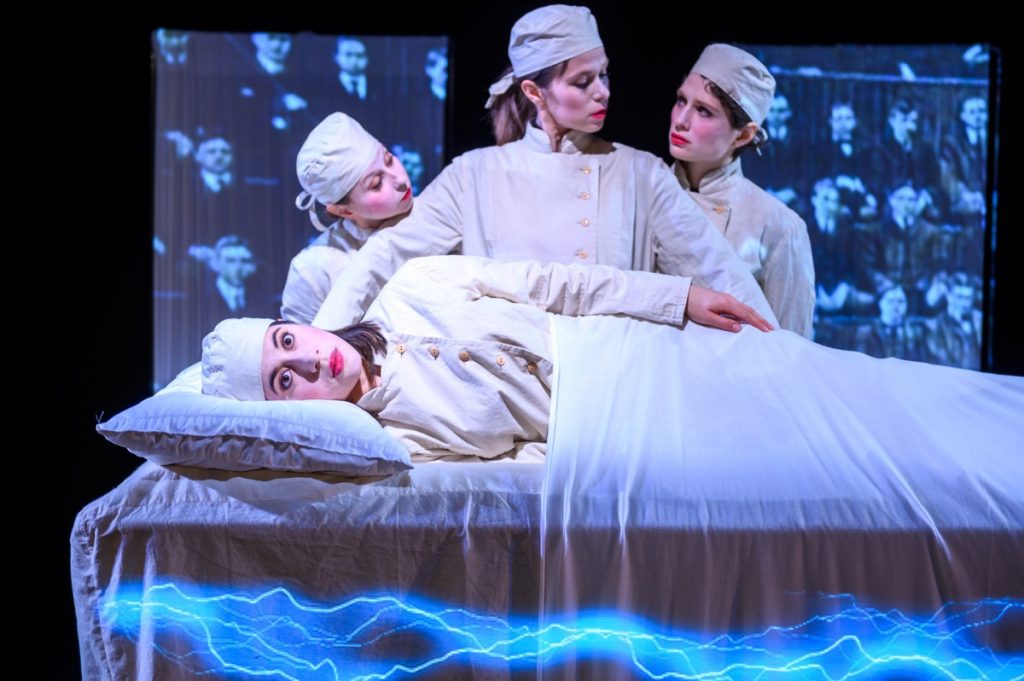
You’re a patient in your own play that you didn’t want to write. Never mind be in. Kate speaks this truth as we enter the world of mind and mysticism through SHAYNA VIRGINILLO’s vulnerable performance. I found the way Taliesin wrote Penfield into her script fascinating. Two women play one man: MAÏZA DUBHÉ acts out the surgery with Shapiro, the assistant played by HAYLEY CARR, while ALEXANDRA MONTAGNESE speaks his thoughts through a microphone. It creates a compelling character with auditory resonance, taking advantage of the strength of each actor. The entire play acts on a similar tension between two types: immersing those unfamiliar with brain injury in its world while telling people with brain injury, “You’re seen.”
What’s it like to be a patient? An endless series of assessments. Can you touch your nose? Can you draw a clock? Walk for me. Here, use these strategies.
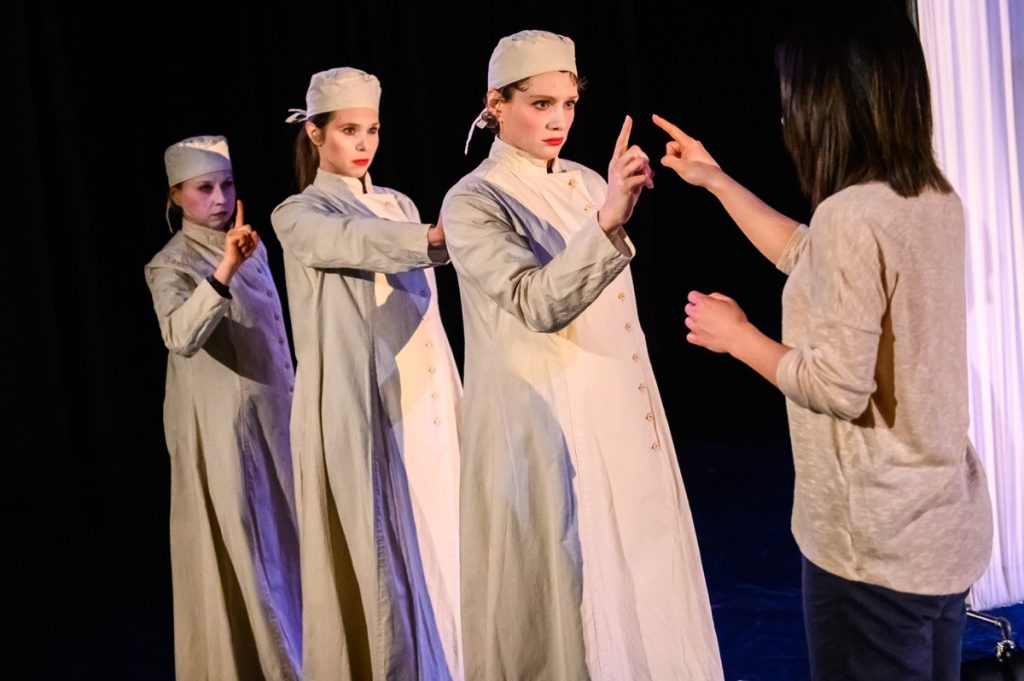
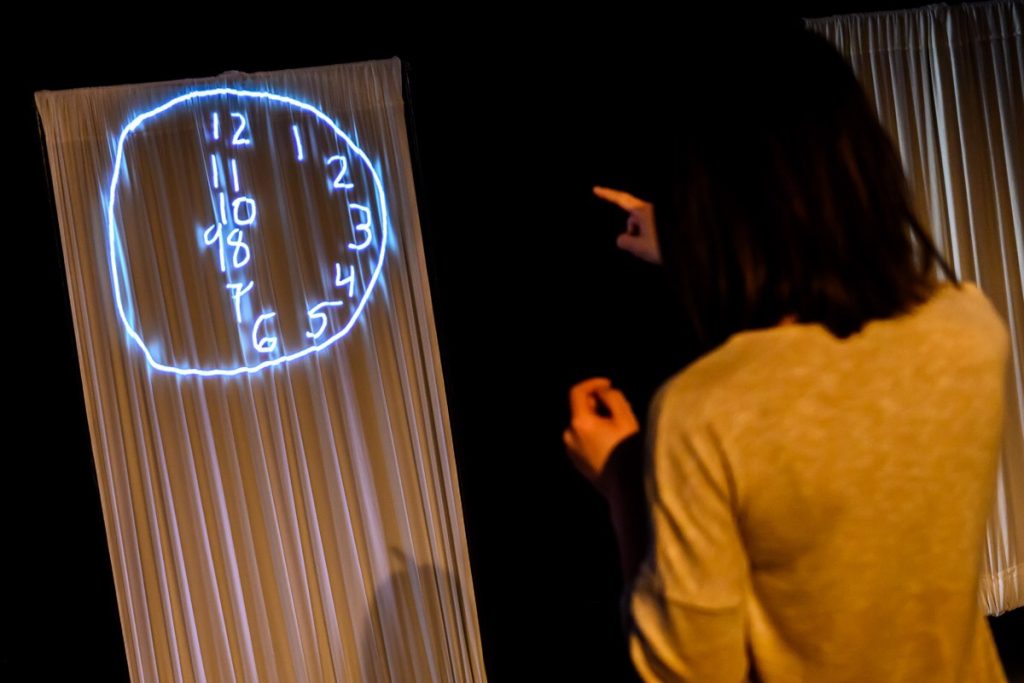
And then the doctors and therapists launch you into the world. At first, it’s familiar. The TTC subway you ride on everyday.
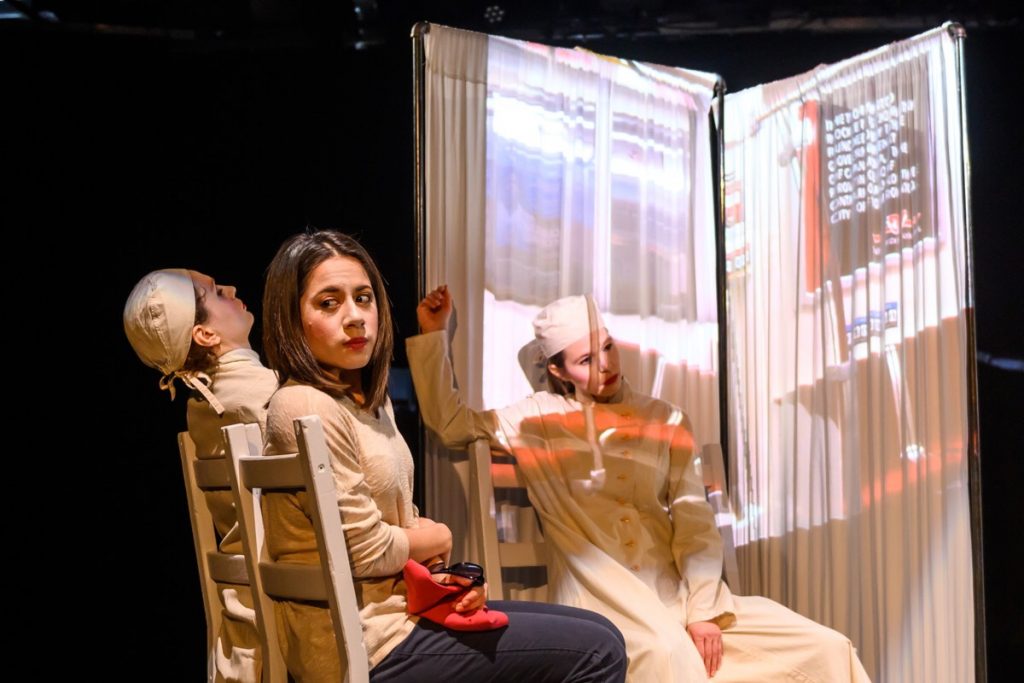
But then the familiar morphs into the unbalanced, the confusing, an overloading of the senses, and you just want to hide under your hat and sunglasses. And absolutely nobody around you cares. Certainly not the TTC! While Kate tries to survive her ride, I write and write about mine.
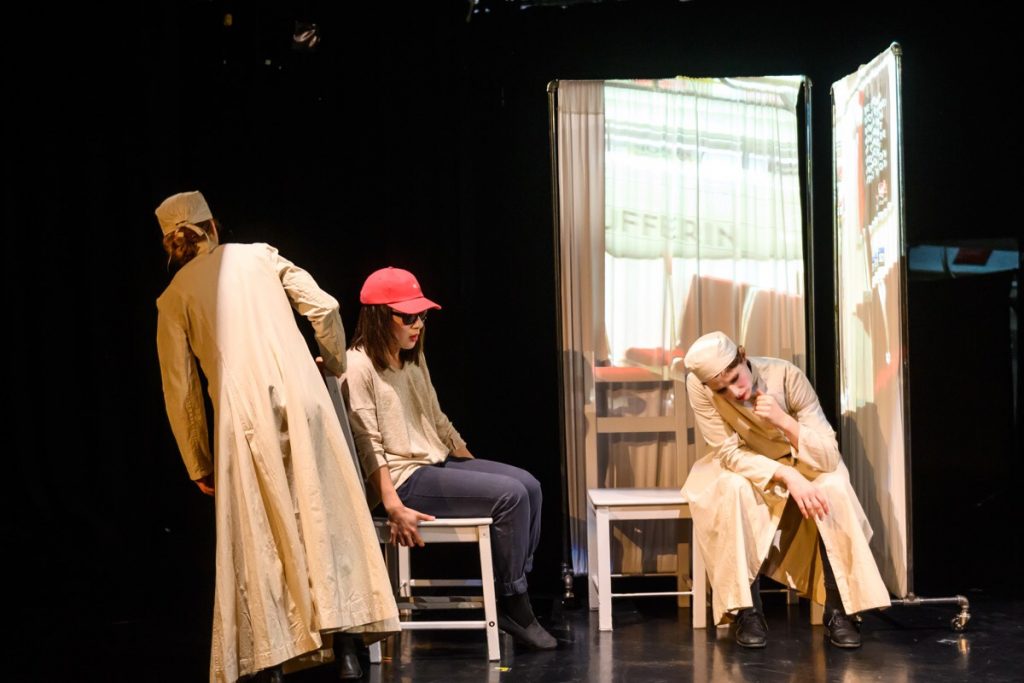
Kate meets up with her friend Emma, hugged and thankful. Then everything goes squirrelly. Yup, we’ve all been there, today’s BIST audience noted during the talkback. I attended Opening Night then two other performances where I participated in the Artist Talkback including today’s. Unlike Wednesday’s talkback with the general public, today’s had both BIST audience and us on the panel taking on both questions and answers.
How should friends treat you? was one of the non-BIST questions. A BIST audience member and I answered the question; the questioner noted that Emma vividly showed how not to do it! ALEXANDRA MONTAGNESE’s bold portrayal with fabulous moments of humour was like a foil to Kate who just needed a moment, a moment for the world to stop rushing in and drowning her brain in sensory overload.
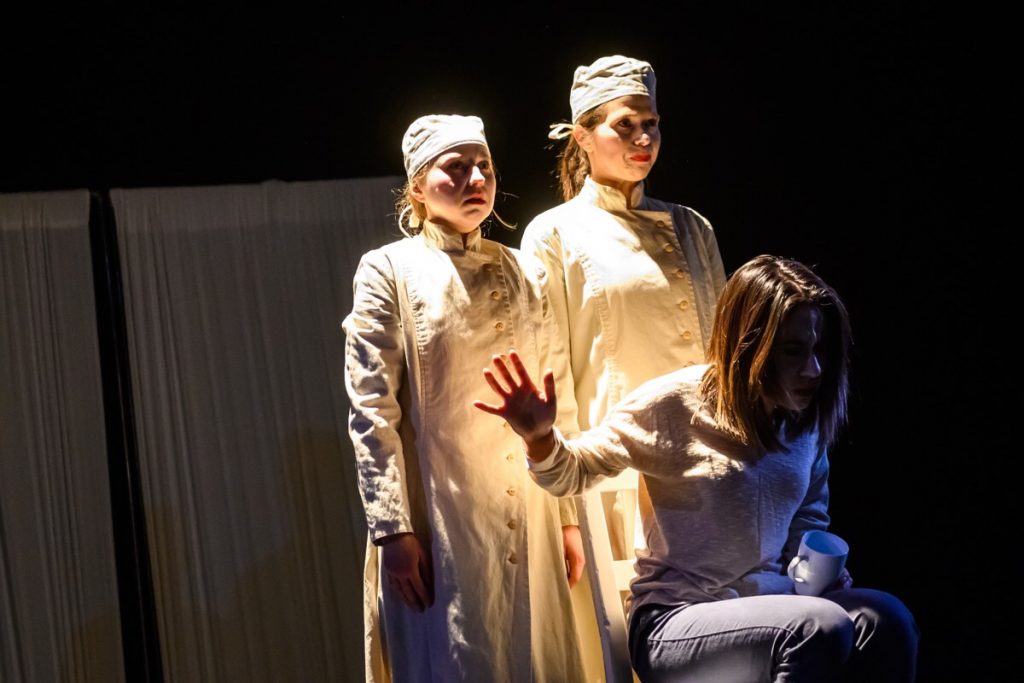
Other questions revolved around the mysticism of Claire channelling spirits and Dr. Wilder Penfield. (Claire played by HAYLEY CARR and the two spirits harassing her to use her gift of automatic writing played by MAÏZA DUBHÉ and ALEXANDRA MONTAGNESE.)
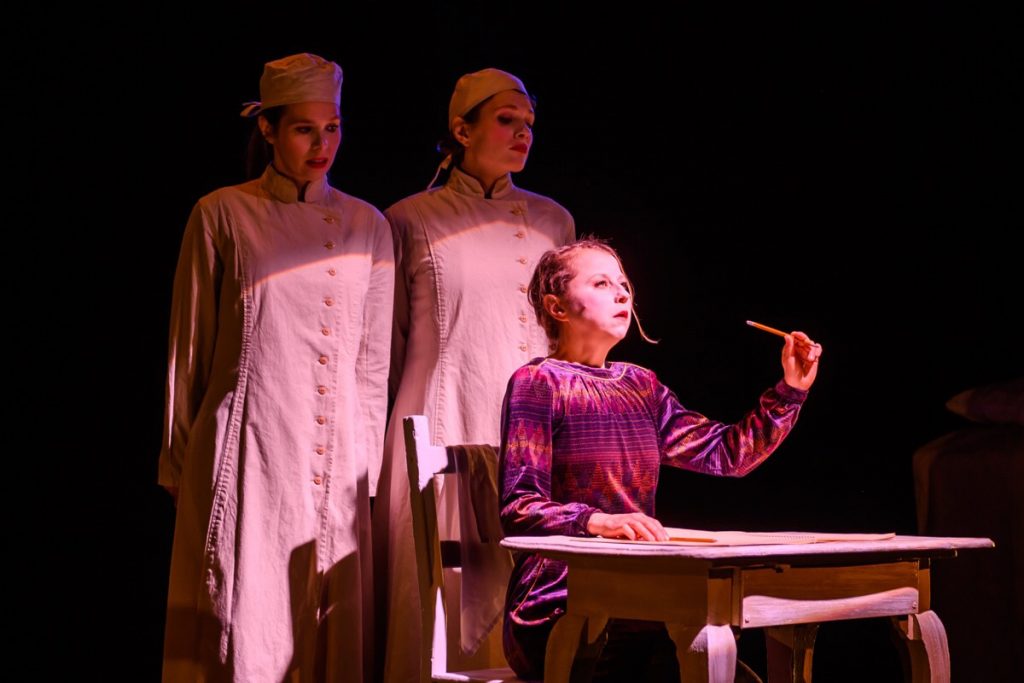
In the 2017 version, this scene was a fragment of what it has become, and I’d found it confusing. I wrote:
My only quibble was the first transition from what was happening to Kate in the now to Kate returning in memory to a time with her grandmother. It was awhile before I understood what her grandmother was doing and that the scene was a memory.
https://jeejeebhoy.ca/2017/07/13/brain-storm-a-review/
Taliesin gave me the script and a link to the video of the play over the summer to edit in my role as dramaturge. I hunkered down over this scene, editing (and I sure did get a chuckle over Emma’s dramaturge comment in this week’s version of the cafe scene!), writing notes, researching a bit, then commenting on it in my role as brain injury consultant. Each time I saw it in rehearsals and then each performance, with the actors and Taliesin refining it, adding to it, injecting it with the dramatic and the comic, the scene blossomed like a multi-petalled rose into the central focus of Brain Storm.
As a novelist, I work alone. This experience of working with many revealed the wonderful power of true collaboration. Collaborating on a scene, on choreography, on the whole play, on the stage manager Tara Mohan helping me out during rehearsals, on the sound designer Olivia Shortt peppering me with questions (so wonderful to have one’s thoughts sought out and experiences seen as knowledge-giving, truly!), on associate producer Annie Clarke keeping me in the loop, on Taliesin and front-of-house manager Emma Westray giving me the opportunity to sell my book Concussion Is Brain Injury at the door, inviting me on to a panel (and even better, not a manel) with the actors and writer/creator. When creators collaborate, the result is stunning. No wonder Brain Storm has received rave reviews galore from The Globe and Mail to entertainment sites to theatre websites.
It’s bittersweet as I write this: the play has two performances left at Dancemakers Studio in Toronto’s Distillery District on Saturday night and Sunday matinee, but my part in it is over. I am thoroughly exhausted and utterly amazed at where this opportunity has taken me.
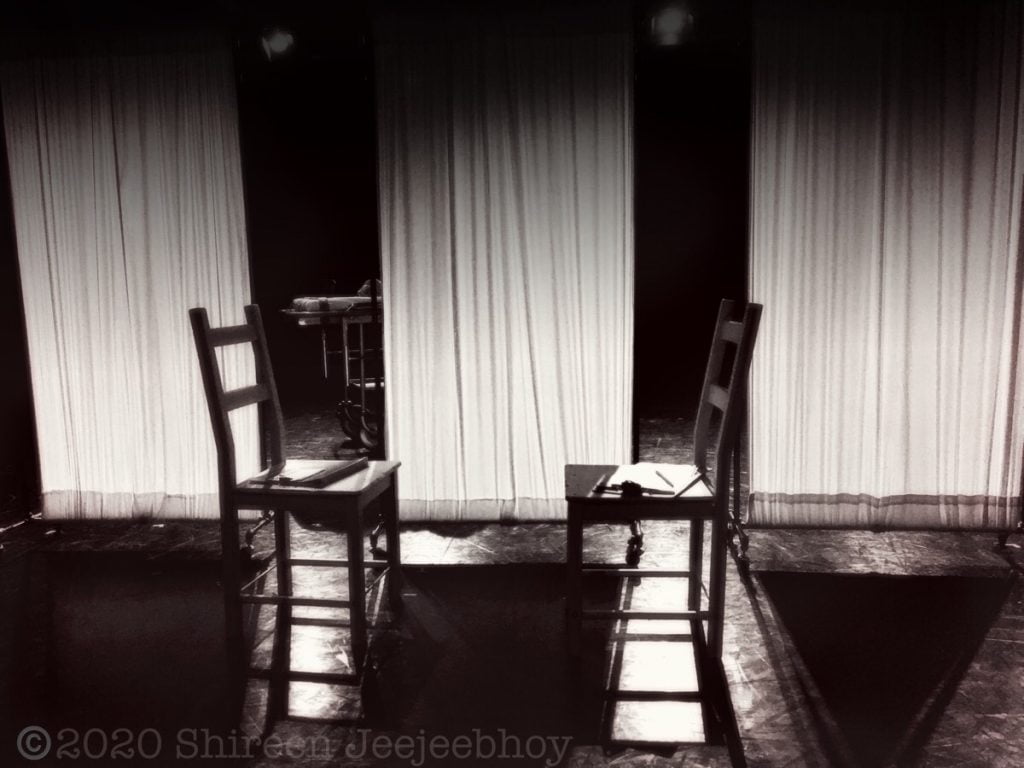
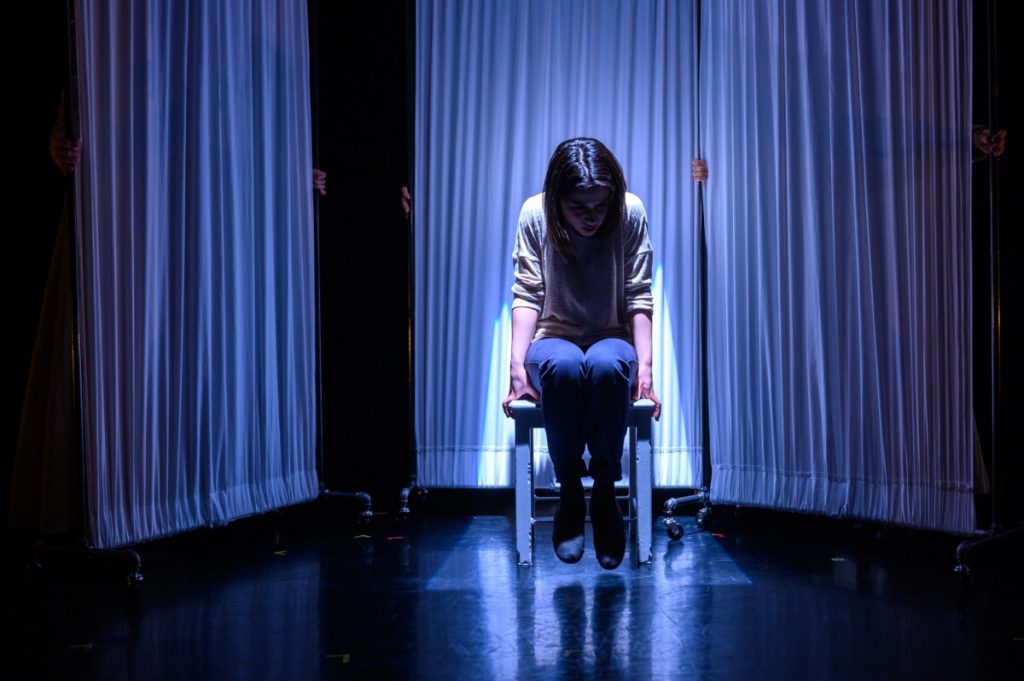
In the end, you’re alone, always alone in your brain injury. After the opportunity, I go home to bed.

